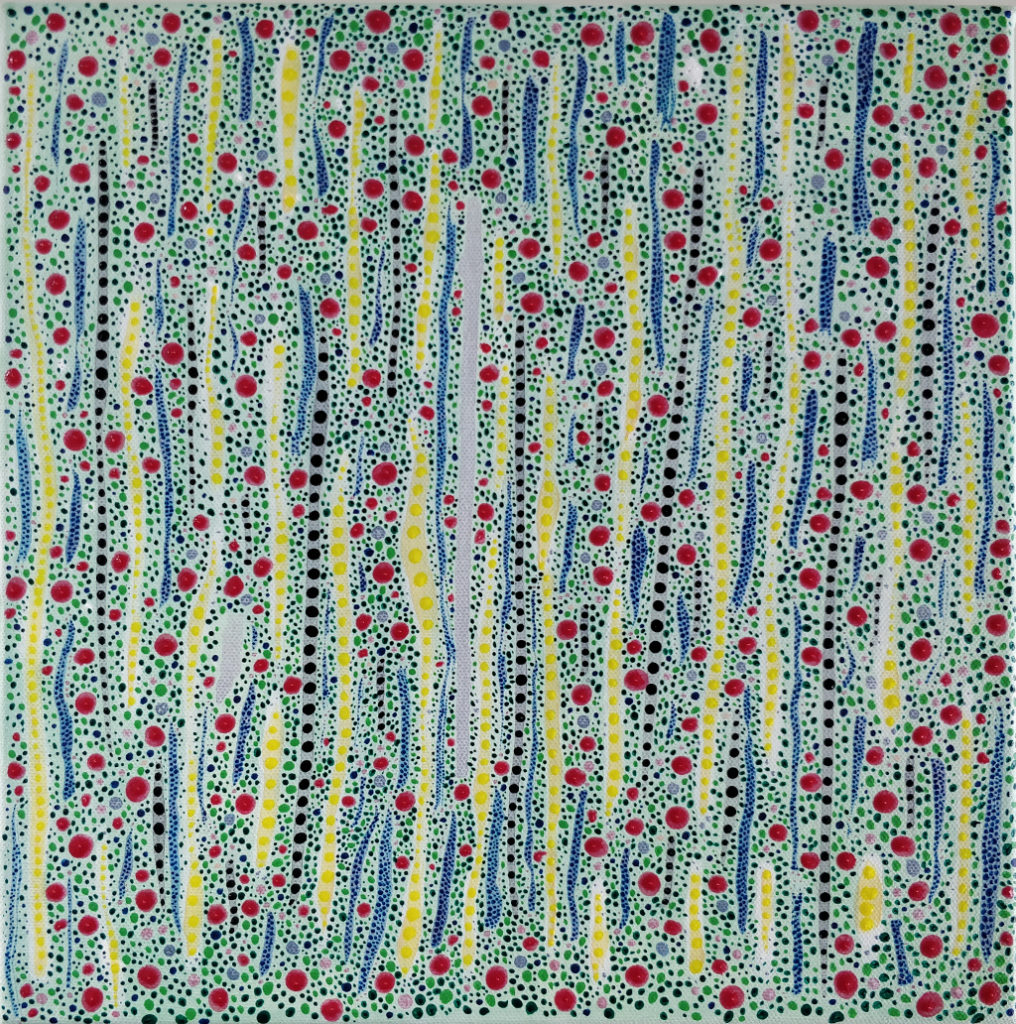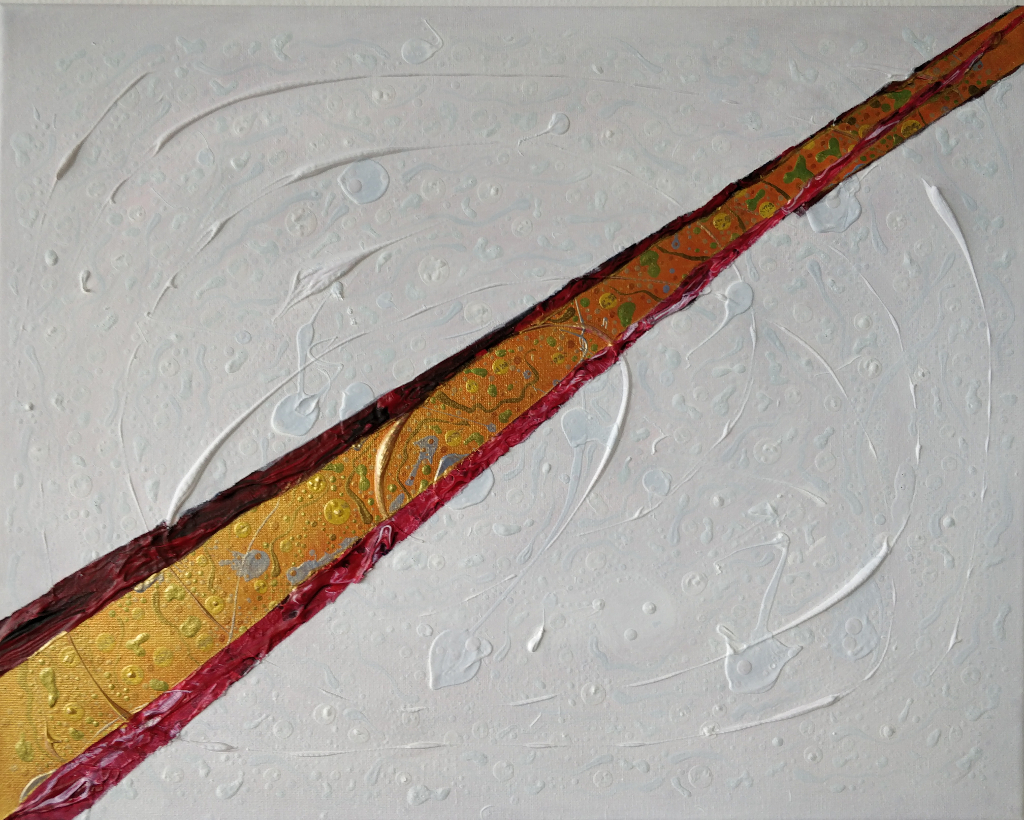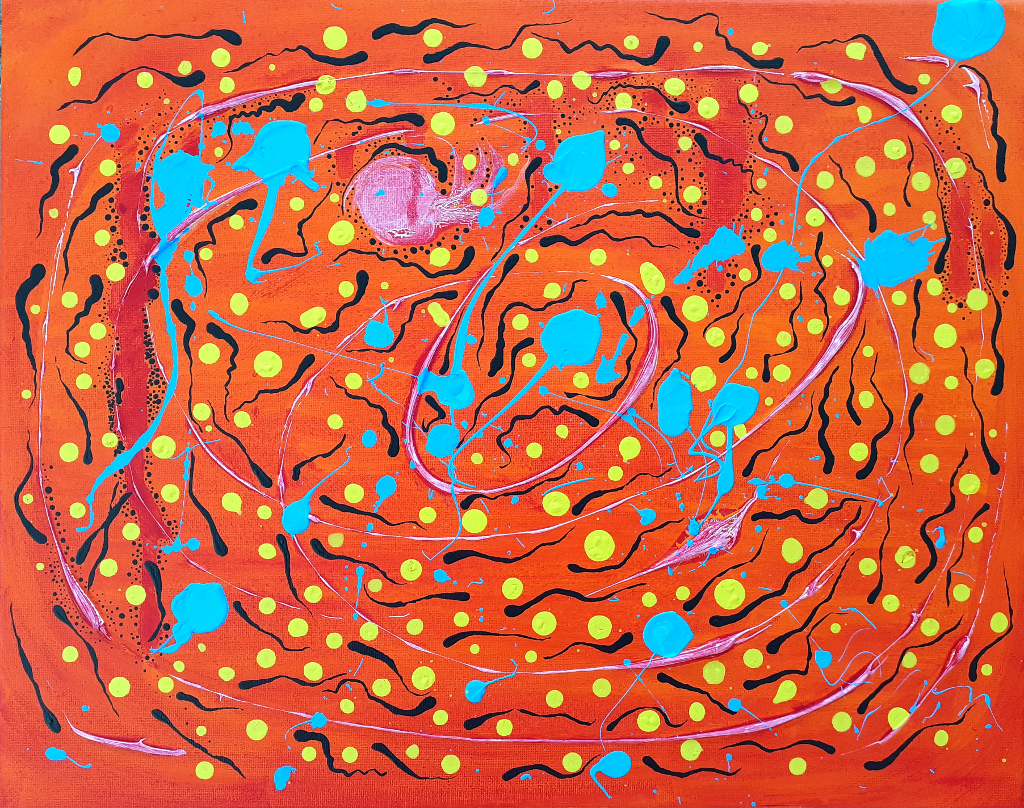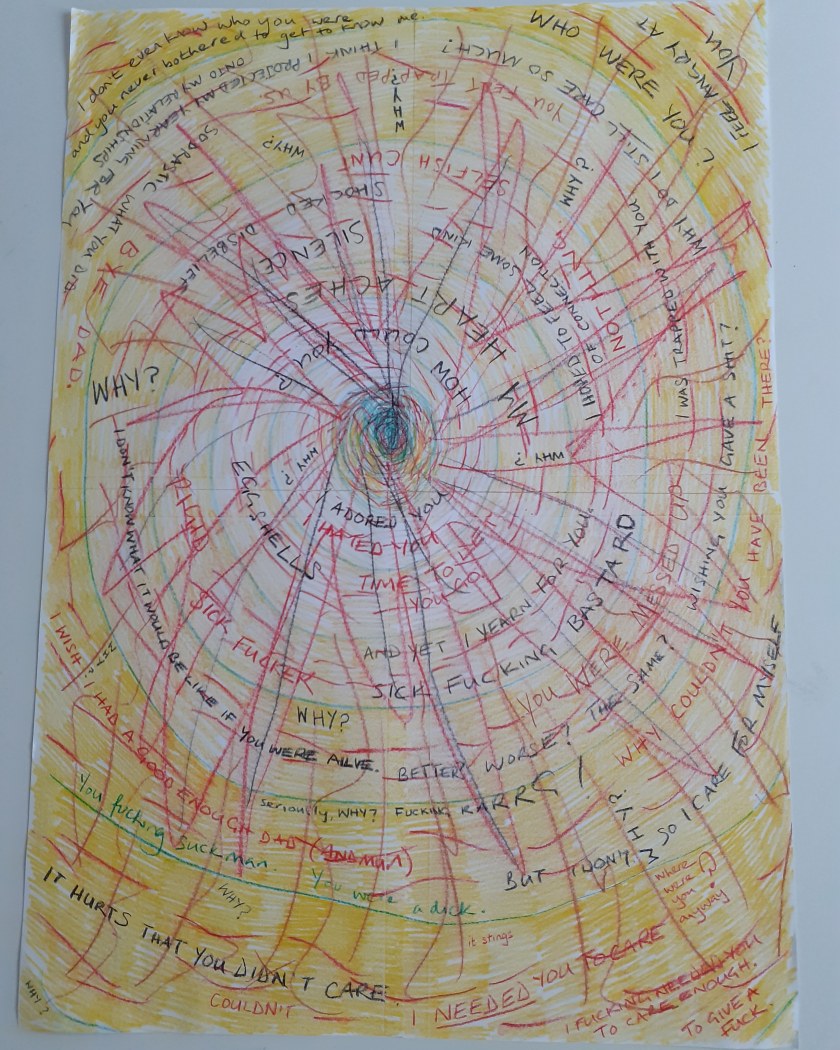
Acrylic on canvas
12 x 12 in




Perhaps the most fundamental condition of creativity is that the source or locus of evaluative judgement is internal.
Carl Rogers (1998)
When I was thirteen my art teacher told me I wasn’t good enough to do art at ‘O’ Level and I believed him. Perhaps what he actually meant was, “you enjoy making art too much. You don’t take it seriously.” I used to sing and make noises and talk during my mark making. I once drew a still life that had the words, “ahhh, shit!” in it (I drew what I saw). Perhaps he disliked my enthusiasm because he’d lost his own. I didn’t take art seriously. It was fun. Until he told me I wasn’t good enough. I stopped making art and began journalling instead.
Continue reading “Locus of Evaluation Part 1”
Trauma is not the event(s) that happened to you, it’s how you are affected by those events.
Continue reading “How Trauma Gets in the Way of Your Goals and What You Can Do About It”Every noise, every touch, the stones beneath my feet, the splash of fountains from a window, crept evilly upon my senses. The air had a stinging weight like ocean waves. I felt myself a stranger to the world.
Circe by Madeline Miller

Given that an estimated 20% of women and 4% of men in England and Wales* have experienced sexual violence since the age of sixteen (and those are just the reported cases; therefore, these figures could be just the tip of the iceberg, not to mention the child sexual abuse figures; see Rape Crisis for more statistics), there is a high probability some of them will be your clients or customers or colleagues or students or apprentices or family members. There are also many people who have experienced emotional and/or physical abuse and/or neglect. You might not know this about them because they may never tell you. Since some of the people you spend time with at work and home are likely to have experienced trauma, it follows that being trauma informed in the ways you communicate with them will be helpful to both you and them.
Continue reading “Could being ‘trauma informed’ help you in your work and personal relationships?”In January 2018 I was experiencing deep frustration at the fear that was paralysing me when I went to climb. Climbing was one of my passions and had been for about a year, yet when I went near the wall I felt crippling fear. I wondered whether my fear was related to the effects of trauma that pop up in my life, so I decided to research trauma and recovery, and set myself experiments to overcome fear. I recorded my journey in a series of blog posts, in case anyone else was going through the same thing as me. I thought I’d share links to those posts here because the sports psychology I used in my experiments might be useful to you. Here they are:
Continue reading “Overcoming irrational fear in climbing”